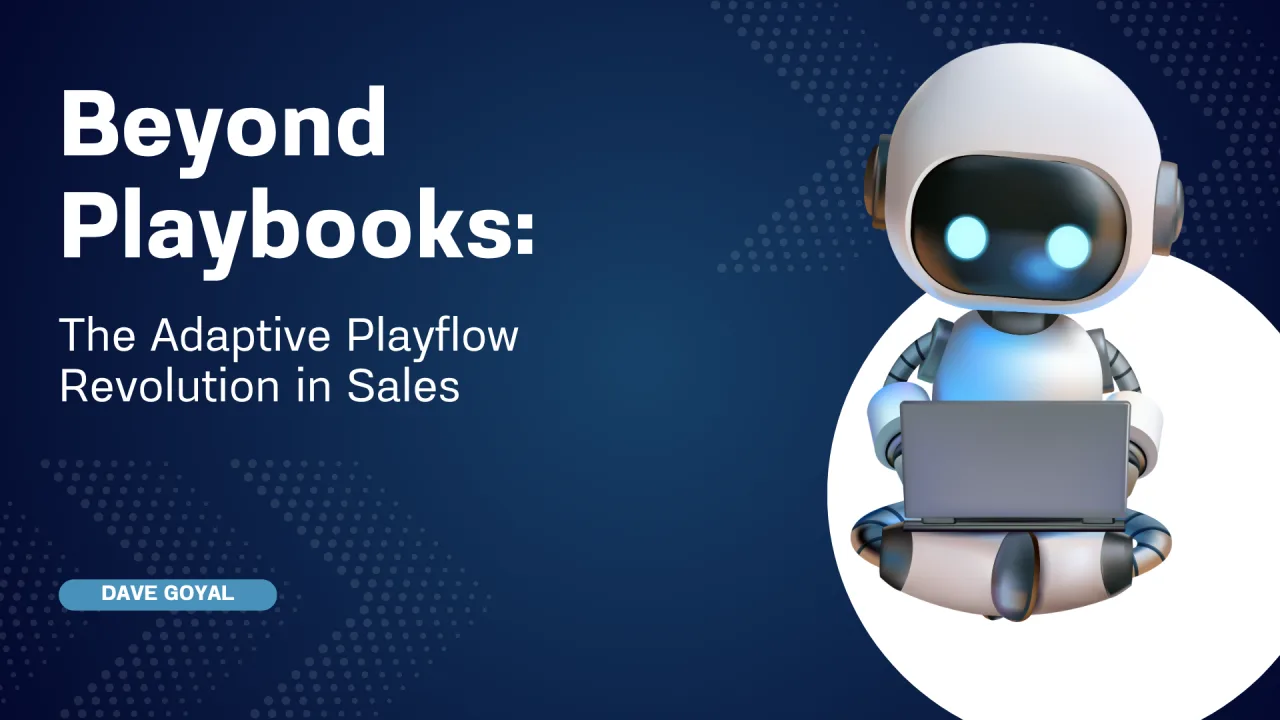The sales floor is not what it used to be. Gone are the days when sales representatives relied solely on static playbooks and scripts, hoping to match prospect intent with predefined talk tracks. Today, the pace of change in buyer behavior and market conditions renders traditional playbooks obsolete almost as soon as they are written. The gap between outdated material and real-world application has become a liability, costing organizations deals, time, and credibility.
In this context, adaptive playflows powered by artificial intelligence are transforming how sales teams operate, offering dynamic, personalized, and intelligent guidance in real time. This shift is much more than a technological upgrade, it represents a new era of sales enablement where adaptability, insight, and relevance lead to consistently higher win rates and buyer engagement.
When Static Playbooks Fall Short
For many organizations, static playbooks were once the backbone of sales training and enablement. These documents aimed to standardize messaging, responses, and processes, providing a ready reference for new hires and seasoned pros alike. Unfortunately, their rigidity often became a burden. As markets evolved and customer preferences shifted, static playbooks quickly fell out of step.
Sales teams found themselves referencing documents that failed to address new objections, emerging competitors, or the nuanced signals that buyers were sending. The result was missed opportunities, inconsistent messaging, and lower morale among reps who felt their tools were holding them back instead of propelling them forward.
Sales leaders began to recognize that winning strategies required continuous adaptation. Playbooks residing on a shared drive or printed in binders could no longer meet the needs of modern sales teams that must respond immediately to changes in buyer interest, industry trends, and competitor moves.
The Emergence of Adaptive Playflows
Adaptive playflows are the natural evolution of the sales playbook. Instead of static instructions, adaptive playflows deliver intelligent, real-time guidance integrated with customer relationship management systems, sales engagement platforms, and communication tools. These playflows actively learn from every interaction, continuously updating recommendations based on frontline data, best practices, and changing market conditions.
Imagine a system that detects when a buyer ignores an initial outreach and immediately suggests a targeted LinkedIn follow-up. If a prospect raises a new objection during a call, adaptive playflows surface countermeasures and content that have proven successful in similar situations. Sellers are supported throughout the buyer journey, receiving input that is both timely and relevant. The mechanical, step-by-step approach of static playbooks is replaced by fluid, situation-aware engagement.
Real-Time Advantage Through AI
Artificial intelligence is the engine that powers adaptive playflows. Machine learning models analyze thousands of data points from buyer interactions, email campaigns, and CRM updates to guide sales teams in the moment. This enables several advantages:
- Instant adjustment: The system detects buyer signals, such as email opens, website visits, and verbal cues, then modifies recommendations accordingly. Sales conversations become more productive, with teams reporting up to 42 percent increases in meaningful first meetings.
- Personalization at scale: Messaging is tailored to account history, persona, and industry context, driving response rates as much as 35 percent higher than standard outreach.
- Automated coaching: Playflows flag stalled deals and disengaged prospects, offering proven tactics to revive conversations. Sales representatives receive continuous feedback and coaching based on data, not guesswork.
- Acceleration of best practices: Successes and failures feed back into the system, enabling rapid deployment of new strategies. Optimization cycles are reduced by nearly a third as lessons learned are quickly shared team-wide.
Measurable Improvements for Sales Teams
The shift to adaptive playflows delivers notable results for organizations. Industry research and case studies show:
- Increased revenue between 3 and 15 percent as sales teams improve their targeting and close more deals.
- Conversion rates improve by up to 30 percent, thanks to real-time, situation-specific guidance.
- Administrative overhead is reduced, freeing sales professionals to devote more energy to prospecting and relationship-building.
- Sales ROI grows, with adaptive systems eliminating time spent on ineffective outreach and outdated tactics.
Teams adopting adaptive playflows also report higher morale and confidence among sellers, who appreciate timely support and guidance that addresses their actual challenges rather than theoretical scenarios.
Making Buyer Interactions Personal
Adaptive selling does not only improve internal metrics; it fundamentally enhances the buyer experience. Instead of receiving generic outreach, buyers encounter communication that responds to their actions, personalities, and priorities. This fosters trust, encourages honest feedback, and increases the likelihood of meaningful engagement throughout the sales cycle. Sellers are empowered to act as advisors rather than script readers, building relationships that endure beyond a single transaction.
Strong relationships are particularly important in crowded markets, where differentiation depends on the relevance and authenticity of every interaction. Adaptive playflows help organizations move from transactional pitches to consultative conversations.
Integrating Adaptive Playflows
Successful deployment of adaptive playflows hinges on seamless integration with sales technology stacks. These systems must work in tandem with CRM, analytics, and communication platforms, drawing data from multiple sources and providing frictionless access for users. Organizations should foster a culture of continuous learning so that playflows reflect not just machine intelligence, but also human insights from the frontline. Role-based customization ensures that sellers, whether newly hired or veteran performers, receive guidance suited to their needs.
Ownership and initiative are key. Sales teams benefit most when adaptive playflows empower reps to act, experiment, and contribute their experiences back into the system.
The Adaptive Advantage
Adaptive playflows are not just a trend, they represent the future of sales enablement. Sellers discover new levels of effectiveness, buyers receive a more compelling experience, and businesses achieve consistent growth regardless of market volatility.
Sales success in the modern era belongs to teams who can learn, adapt, and excel in real time. For those willing to embrace the adaptive playflow revolution, the path to higher win rates, faster cycles, and deeper relationships is clear.
Click here to read this article on Dave’s Demystify Data and AI LinkedIn newsletter.

